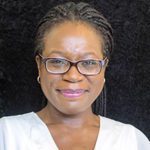As a Black woman in academia, getting through my PhD was one of my biggest achievements. Mostly, I muddled through, but with the support of my cohort and guidance from a few choice people, I was able to navigate my way through the uncertainty of graduate school.
No. 1: Think about what type of career you want and tailor your dissertation accordingly, but be flexible
Figure out what type of career you want post-PhD. When I started my PhD program, I very clearly stated that I did not want to go into academia. I had every intention of going into policy and research when I finished. To help me achieve this goal, I wanted to write a dissertation that was policy relevant, and sought opportunities to attend policy roundtables to speak to specialists. It was while working on a USAID-funded project on conflict resolution in Nigeria, when local civil society and community leaders brought up the impact of military deployment in communities while fighting the Boko Haram insurgency. This led me to examine military conduct in conflict zones, and their impact on civilian communities in Nigeria. I spent nearly a year conducting interviews with both military personnel and civilians living in active conflict zones in Nigeria, so that I could write a dissertation with real-life policy implications and recommendations. Because I designed my dissertation to straddle interdisciplinary fields, I was able to redirect my career path and get a job in academia.
No. 2: Learn how to advocate for yourself
It is important to remember that once you start a PhD program, you become an apprentice at the bottom of a very hierarchical system. Make sure that nobody tries to diminish you based on their own biases and perceptions. You also need to know how to say no to extra projects and work which does not align with your research interests or is too much of a time commitment that takes away from your graduate studies.
No. 3 Find your community
I was in the inaugural cohort for a brand-new PhD in Global Governance and Human Security at the University of Massachusetts, Boston. Most of us were international students, and as a result, we became close friends and a much-needed support network. This group of people was an essential part of me completing my PhD program, and I will be forever grateful for their support. I also had the support of my external PhD committee member, Dr. Stephen Chan, who offered me, sage advice, plus many reality checks during my field research in north Nigeria (particularly when I was either going in or coming out of an active conflict zone). I also attended many conferences and actively sought out other PhD students in my field, just to share experiences and horror stories. Having a group of people that you can call on as friends within and outside of your program and university, and not just for networking or PhD work, will help you navigate your PhD journey.
No. 4: You don’t know what you don’t know – and it’s OK
Remember that you go to graduate school to learn, so you won’t know everything immediately. Learning to navigate academia in America as a Brit was a steep learning curve: I had to figure out new terminology, learn different writing styles, and of course, had a very heavy workload. It is a competitive atmosphere, and there will be people around you who may not help you in the way that you need. Just remember that not knowing what you don’t know is not a weakness. There will be people who will readily guide you through the doctoral socialization process, and advocate on your behalf, if you seek them out as a mentor.
Just remember that not knowing what you don’t know is not a weakness.
I actively sought advice from professors I knew from my Masters graduate program at the School of Oriental and African Studies (SOAS), University of London, and from former colleagues at the House of Commons. I was able to have more transparent conversations, and receive unbiased opinions that were in my best interest. It is so important that you find the right mentor for you: a good mentor will advocate for you, listen, and encourage you, without being unkind. Find someone you admire that will help you break down your ideas into goals that you can accomplish.
No. 5: Choose your PhD committee (and chair) wisely
Your committee members are just as important as your dissertation, so choose wisely, not just in areas of specialty, but also how they will support you and your writing process. My committee members came from different sub-disciplines in the social sciences, as I wanted my committee to reflect the different strands of thoughts I was trying to pull together. Despite initial difficulties of faculty coming from different theoretical and policy angles, my committee was able to engage with my work in a way that elevated my thought process and research ideas. My committee chair, Dr. Darren Kew, was also my biggest advocate: he truly listened to what I wanted to achieve with my dissertation, helped synthesize my very ambitious ideas, and guided me through my writing process. He was also instrumental in helping me navigate the ever-changing conflict landscape while I was carrying out my field research in Nigeria.
This is the third post in our week-long “Five Things I Wish Someone Had Told Me in Graduate School” series. – The BtG Editors



0 Comments
Trackbacks/Pingbacks